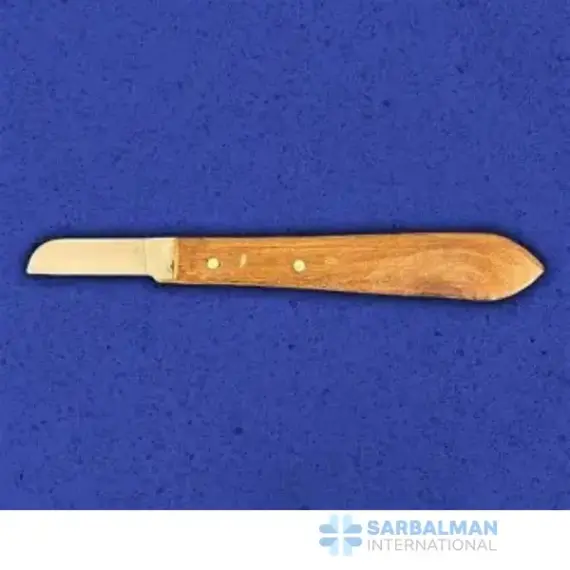Plaster Knife
Free!
A plaster knife built for dental lab work. The semi-rigid stainless blade with a rounded tip trims and shapes gypsum cleanly, while the balanced, riveted handle gives secure control. Use it to mix, load, scrape, and bevel dental stone and plaster models, remove excess, and refine borders without chipping details. Choose it for faster model finishing, better control near margins, and durable performance on the bench.
Description
A plaster knife is a sturdy bench tool used in dental laboratories to mix, cut, and trim gypsum products such as plaster and dental stone. The broad, semi-rigid blade gives controlled leverage for scraping and shaping casts without chattering or gouging. A rounded safety tip and a comfortable handle make it easy to work close to margins and borders while protecting the model. It is designed for repeated contact with water and gypsum, not for intraoral use.
Key features
-
Semi-rigid stainless steel blade that resists corrosion and staining
-
Rounded or bull-nose tip for safe trimming near delicate anatomy
-
Tapered edge for scraping, slicing, and smoothing set material
-
Full-tang, riveted handle for balance and a secure grip
-
Easy to clean; compatible with routine laboratory decontamination protocols
Primary benefits
-
Clean, controlled trimming that preserves anatomical detail
-
Faster model finishing with fewer chips and repairs
-
Reliable handling when separating excess stone from bases and trays
-
Durable build that stays straight under pressure
Common uses and applications
-
Mixing and loading plaster or stone for model pouring
-
Trimming and beveling model bases, land areas, and sulcus borders
-
Removing nodules, bubbles, and excess gypsum after separation
-
Cutting impression compound and cleaning tray edges in the lab
-
General bench work where a broad, safe blade is preferred
How it compares
-
Versus a scalpel or utility knife: thicker, stronger blade for prying and scraping, with less risk of accidental cuts.
-
Versus a lab spatula: better leverage and edge control for shaping set gypsum rather than mixing alone.
Care tips
-
Rinse promptly after use to prevent gypsum buildup.
-
Hone the edge periodically for smooth scraping.
-
Store dry; wooden handles are not intended for steam sterilization.




